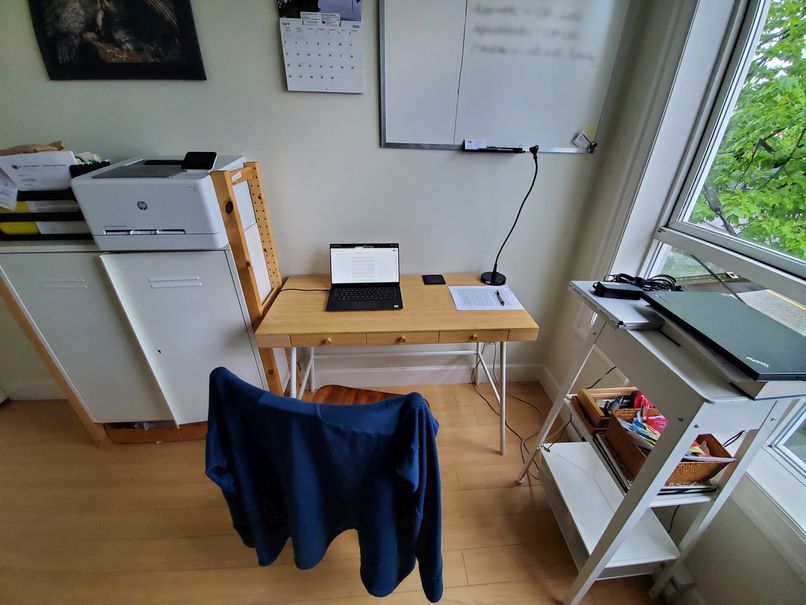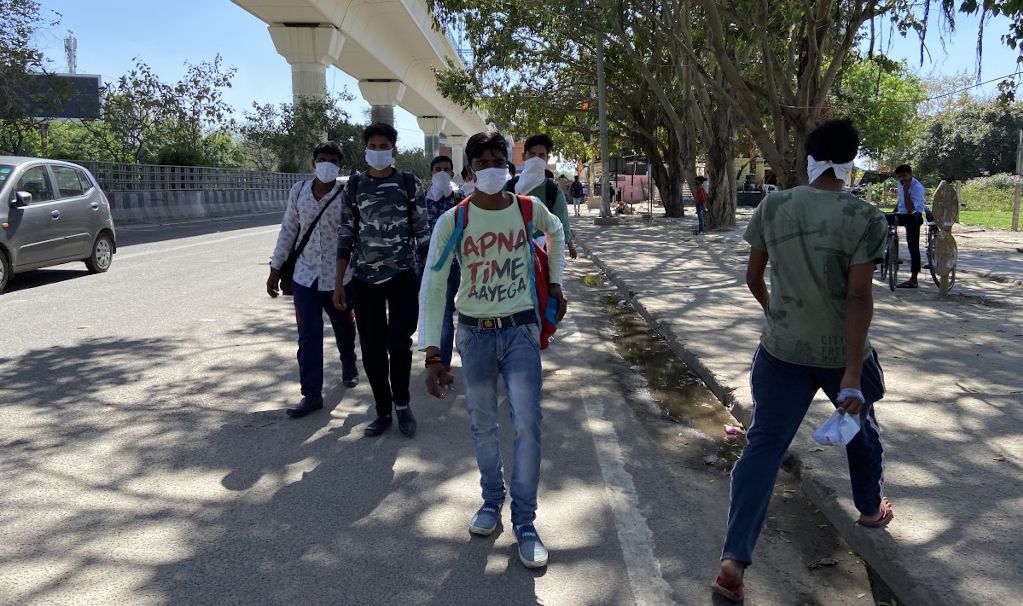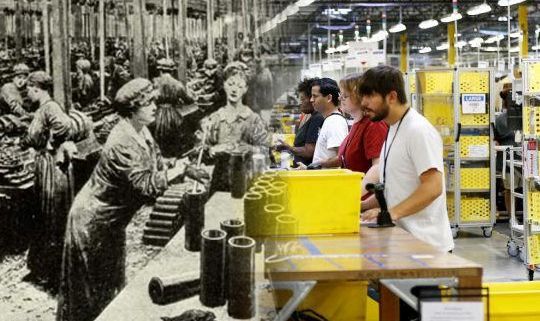Relatively speaking, I have it pretty easy during this pandemic. I am working from home on my laptop, still getting paid, still able to pay rent. Self isolation has thus far been pretty easy, as I rarely need to leave the house.
Of course, mental health demands that I do go outside from time to time. I have tried to take up jogging. It gets me outside and gets some much needed exercise after all of my usual fitness-related activities have been canceled. Jogging while social distancing is a bit of an absurd exercise, as you spend much of your time dodging around trying to stay two meters away from pedestrians and other joggers.
Another thing I have been able to do for my mental health is have a defined separation between work and home space. I have the luxury of enough room in my apartment to have a separate office for working, something I know a lot of workers in this city can’t afford. My partner is still working outside our home, which means I have the apartment to myself during the day, another major advantage.
My partner is an anthropologist who works as a front line essential worker and educator. In both of these roles she deals directly with people who are experiencing the sharp edge of the pandemic’s effects, and that brings with it additional levels of stress and trauma. Despite the fact that part of her job could be considered a first responder role, it is legally not classified as such, and so she does not have access to any additional resources or hazard pay to help cope with the extra burden.
Several of my colleagues have young children, and I’ve heard how challenging that can be working from home when the schools are also closed. Capitalism has always demanded that the work of raising children be done for free, but it’s even more clear now. Suddenly, circumstances have forced many working families to take on a huge amount of extra uncompensated work to care for their children at home while still being expected to do their normal jobs.
My own problems seem trivial by comparison. I have had to change the way I get groceries. I live in a walkable neighbourhood and normally I would get a small number of groceries everyday or every other day. Now I want to minimize my contact with other people, so I have to plan ahead and try to stock up.
I’ve noticed in the grocery stores that while everything is set up to ensure customers can practice social distancing, the employees are often not social distancing from each other. I suspect that this is a common phenomenon. Employers have an interest in making the customers feel like they’re taking all necessary precautions, but they still want to maximize their profits. This often means they’re going to be expecting the workers to do the same work in the same amount of time, making it very difficult to maintain social distancing.
All told, the lockdown feels like a surreal kind of limbo. Nobody knows how long it’s going to be, but I think a lot of people still believe that it might end any day, or any week now. There is some indication that people are starting to plan for a longer haul. Some shops along my street are reconfiguring themselves to provide window service, complete with socially distanced line-ups. But I don’t know if anyone, including myself, has really internalized that this could be the reality for many more months to come.




